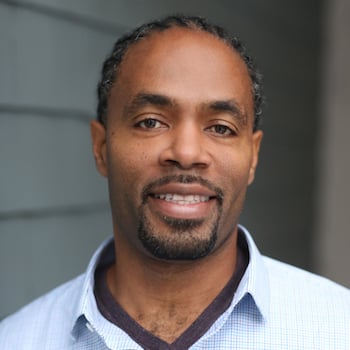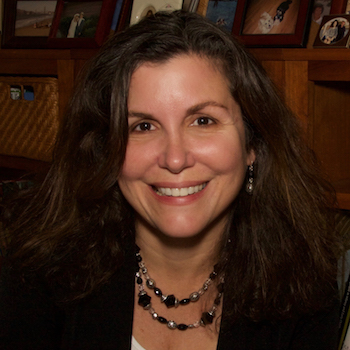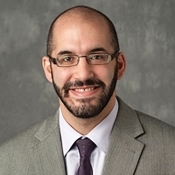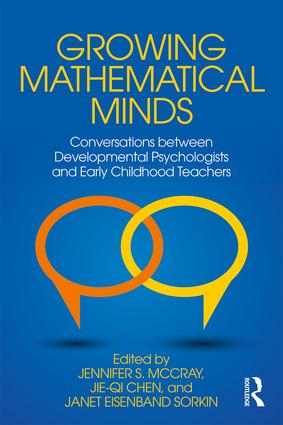Family math is a current “buzz word” among early math educators. Different organizations define it differently, but it generally refers to math-related activities that happen outside the classroom and within the context of family relationships and everyday life. Given findings that early math achievement at preschool entry is predictive of later school success, and that there is an opportunity gap for children from under-resourced communities, we need to know more about how to activate and celebrate math learning in diverse racial, ethnic, cultural and socio-economic family and community contexts.
Early math learning in family and community contexts
Promising Math 2019 provided opportunities to address these concerns through the sharing and building of knowledge, and the development of new partnerships and networks of concerned stakeholders. Operating from the position that mathematics is both vitally important and an opportunity for joyful learning and relationships, our convening highlighted recent research on contexts where early math learning takes place before and outside of school. The goal was to connect diverse participants from varying backgrounds and offer examples of new frameworks for understanding culturally- and linguistically-diverse family interactions around mathematics.
Promising Math 2019 took place November 15th and 16th at Erikson Institute.








 Omo Moses is the Executive Director and founding member of the Young People’s Project (YPP) and the founder of MathTalk, a community-based educational technology lab located in Boston focusing on the research and design of early math products and services for parents, caregivers, teachers and children. MathTalk strives to inspire and equip adults with tools that prompt high quality early math experiences and conversations with children.
Omo Moses is the Executive Director and founding member of the Young People’s Project (YPP) and the founder of MathTalk, a community-based educational technology lab located in Boston focusing on the research and design of early math products and services for parents, caregivers, teachers and children. MathTalk strives to inspire and equip adults with tools that prompt high quality early math experiences and conversations with children. Born and raised in Cambridge, Keith Griffin has been involved with youth physical education for the past 27 years. He coached multiple youth sports leagues for ages 4 through 12. Keith serves on the Cambridge Family Council policies board to help build equity in health and educational opportunities across the city. In 2018, Keith joined MathTalk where he applies his carpentry skills to help create and develop math installations in public spaces throughout the community where he currently lives and raises his 6 children.
Born and raised in Cambridge, Keith Griffin has been involved with youth physical education for the past 27 years. He coached multiple youth sports leagues for ages 4 through 12. Keith serves on the Cambridge Family Council policies board to help build equity in health and educational opportunities across the city. In 2018, Keith joined MathTalk where he applies his carpentry skills to help create and develop math installations in public spaces throughout the community where he currently lives and raises his 6 children. Kelly Mix, Ph.D. is the Chair of the Human Development and Quantitative Methodologies (HDQM) department at the University of Maryland. A former elementary school teacher, Dr. Mix transitioned to academia to better understand how different teaching processes work, as well as why some students struggle to learn concepts that come easily to others. Her research focuses on the development of mathematical cognition and number and spatial concepts in young children.
Kelly Mix, Ph.D. is the Chair of the Human Development and Quantitative Methodologies (HDQM) department at the University of Maryland. A former elementary school teacher, Dr. Mix transitioned to academia to better understand how different teaching processes work, as well as why some students struggle to learn concepts that come easily to others. Her research focuses on the development of mathematical cognition and number and spatial concepts in young children. David Purpura, Ph.D. is associate professor in the Department of Human Development and Family Studies at Purdue University. His current focus is on evaluating the effects of literacy and executive functioning skills on the development of young children’s mathematical knowledge as well as on evaluating interventions and instructional methods that enhance this development. He also studies the home numeracy and literacy environment and how home factors affect children’s academic skills at preschool entry.
David Purpura, Ph.D. is associate professor in the Department of Human Development and Family Studies at Purdue University. His current focus is on evaluating the effects of literacy and executive functioning skills on the development of young children’s mathematical knowledge as well as on evaluating interventions and instructional methods that enhance this development. He also studies the home numeracy and literacy environment and how home factors affect children’s academic skills at preschool entry.
